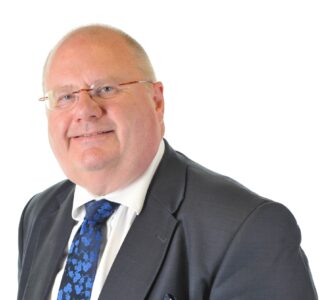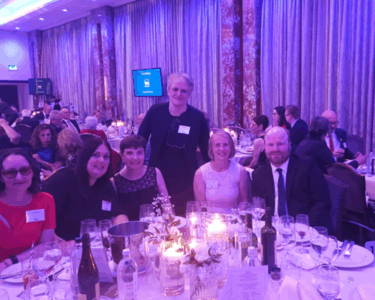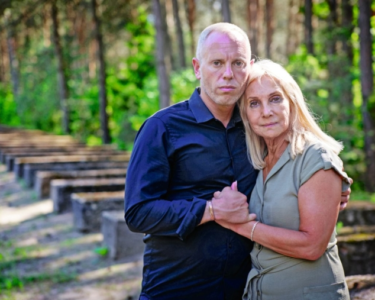Wednesday 19th April 2023 marks the 80th anniversary of the Warsaw Ghetto Uprising, one of the largest forms of Jewish resistance to take place during the Holocaust. The 80th anniversary gives us a chance for a moment of reflection of Poland’s rich Jewish history. For centuries, Poland hosted the world’s largest Jewish population. This rich tapestry of life was nearly destroyed by the Nazi and their collaborators with the murder 3.3 million Polish Jews during the Holocaust.
Remembering Poland’s rich Jewish history is even more poignant today as we commemorate the anniversary of the Warsaw Ghetto Uprising, a moment of resistance and defiance by Jews living in Warsaw.
Almost nothing remains of the old Warsaw Ghetto: just a half-dozen buildings, a synagogue, some fragments of a brick wall. The rest was blown up by the Germans in their onslaught against Jews who took up arms against them.
The uprising, ended in death for most of the fighters yet their sacrifice gave the world a symbol of resistance against evil, that endures to this day.
The Warsaw Ghetto Revolt was among the first against Nazi occupied Europe, inspiring other uprisings. It was a warning to Hitler and his collaborators that Jews would not quietly disappear into the night. Henceforth, no German soldier or camp guard would ever feel safe again in Poland.
The story is well known: In 1939, Germany invaded Poland, forcing the 350,000 Jews of Warsaw into a Ghetto. In the ensuing years, particularly in 1942, the Nazis deported 300,000 of those Jews from the Ghetto. Most of them met their deaths in Nazi death camps.
In response, several Jewish underground organisations, numbering approximately 750 people, with limited weapons, pistols, explosives and in many cases homemade weapons fought back.
At the outset of 1943 they fired on German troops who were rounding up Jews. The Germans retreated.
For a while the Nazis held back, but on April 19, 1943, the first night of Pesach (Passover), they attacked with the intent to liquidate the Warsaw Ghetto. Many believe that they attacked that night to send a message that Passover, the Day of Liberation, should be transformed into a Day of Destruction.
The fighters, led by Mordechai Anielewicz, stunned the Nazis and their collaborators, killing and wounding many German soldiers.
Over the next few weeks, they fought heroically against the odds. From the blazing inferno, the Jewish Freedom Fighters declared:
Amid the din of artillery, amid the rattle of the machine guns, amid the smoke of fires and the dust of the murdered of the Warsaw Ghetto …
“We know that though we may all perish in battle, we will not surrender. We are gasping for the revenge and punishment of our common enemy. Long live. Death to the Torturers and Tormentors. Long live the battle to the death against the Germans.”
They fought bravely on until the final battle at Mila 18 Street, headquarters of the Ghetto Fighters. The Germans planned to destroy the Ghetto in three days. Jews held out for a month, much longer than all of Poland did after the Nazi invasion. Even after the Ghetto was obliterated, its buildings burnt down, Jews hid in the ruins ambushing German soldiers.
Some Jews escaped through the sewers, most were killed or deported to death camps.
The actions of the brave fighters of the Warsaw Ghetto uprising has long been nurtured as a symbol of national pride for Israel and Jews. It is also something that modern citizens of Poland can take pride that the first sustained civilian resistance to the Nazis came from the hands of Polish Jews.
In the spirit of that resistance, there were Poles who protected Jews at a huge risk to their own lives and their families, and more than 7,000 are officially honoured by Yad Vashem, the world preeminent Holocaust Centre— by far the largest number in any country occupied by the Nazis. Their bravery is doubly honoured with the knowledge that their courage was far from the norm.
Today as we remember, the Jewish fighters who took on the might of the Nazi regime and their collaborators we understand that their true victory is evident in the revival of Jewish cultural life in a modern prosperous Poland. Restoring a gaping whole that has existed in that great nation’s soul since the Second World War
In the words of the Chief Rabbi of Poland, Michael Schudrich,
“Nobody knows how many Jews there are in Poland – the number keeps growing. But I know tomorrow, the number will be more.”
This is the legacy of the brave Polish Jews of the Warsaw Ghetto.

Lord Eric Pickles, United Kingdom Special Envoy for post-Holocaust issues and Co-Chair of UK Holocaust Memorial Foundation
- View and download the new and updated IHRA guidance and recommendations
- Find out more about the UKHMF work and plans for a Holocaust Memorial and Learning Centre
The UCL Centre for Holocaust Education guest blog highlights topics relevant to our work in Holocaust education, teacher training and research. Across each year we hear from a variety of guest contributors who provide a range of personal perspectives on issues relevant to them. The views expressed within are those of the author, and do not necessarily represent the views of the Centre.



